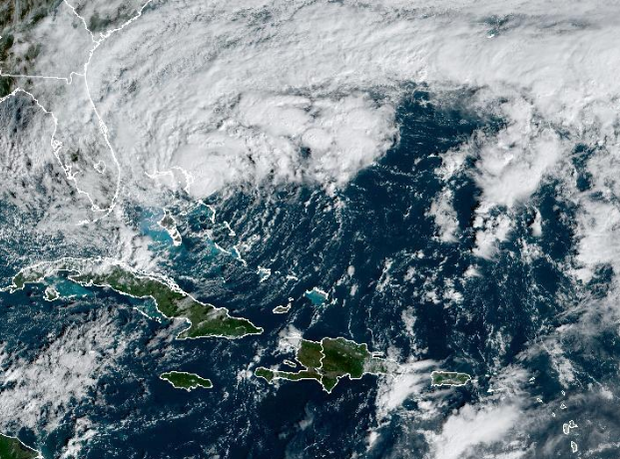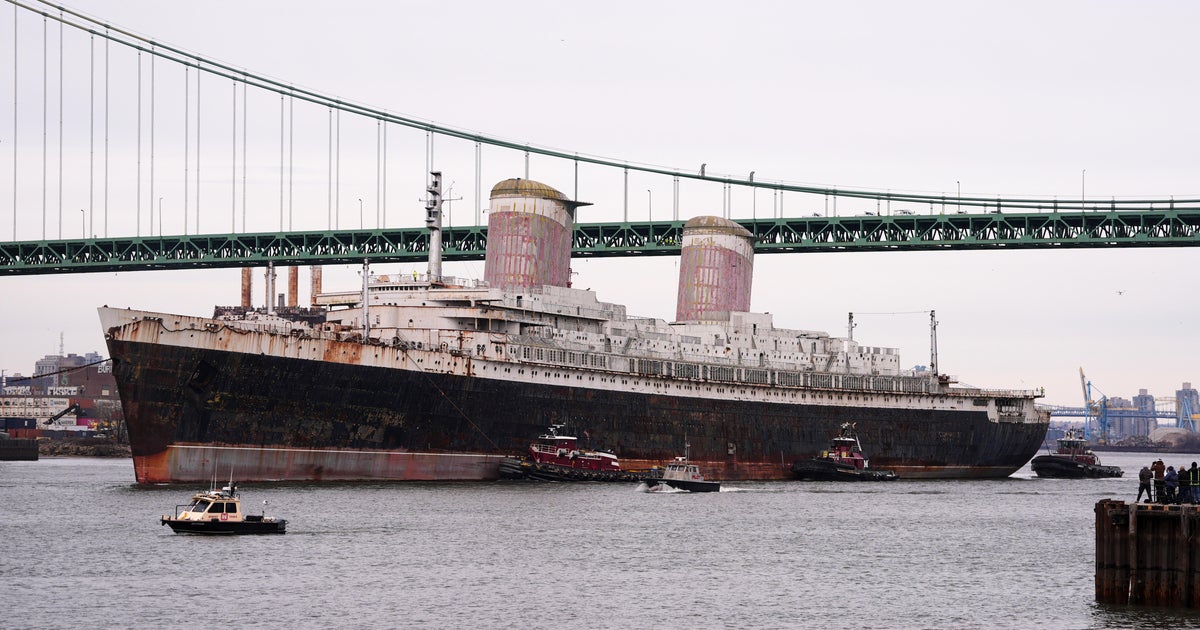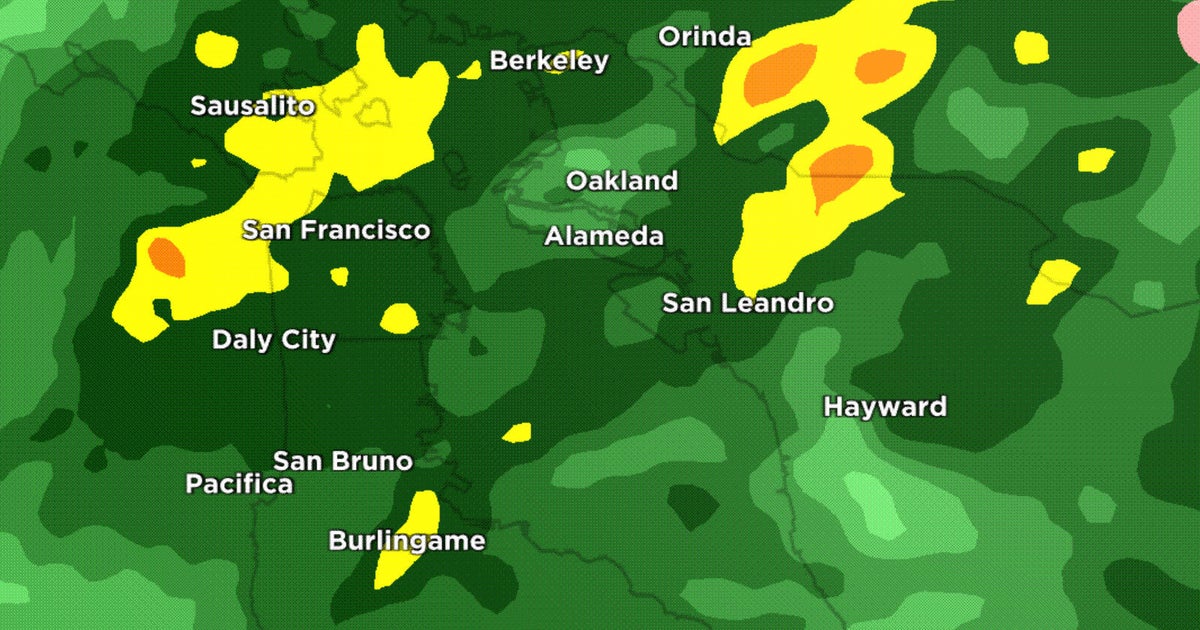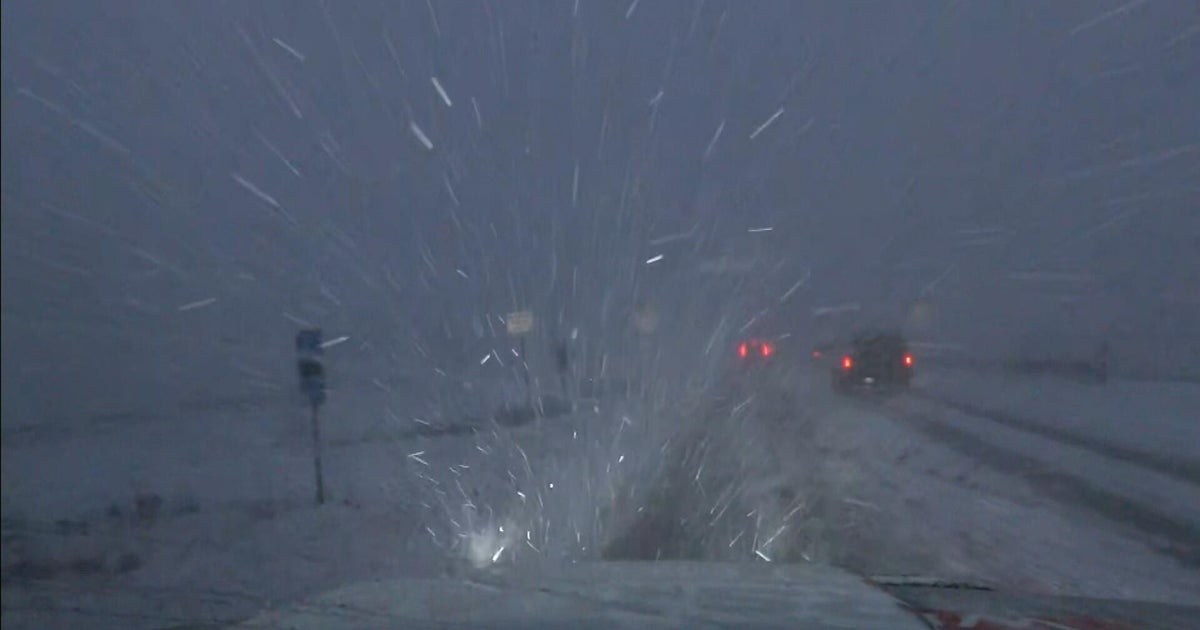Tropical Storm Nicole on track to hit Florida as hurricane after lashing Bahamas
Miami — Many people evacuated from vulnerable locations in the northwestern Bahamas as Tropical Storm Nicole approached Wednesday and residents of Florida braced for the storm. The U.S. National Hurricane Center said it would be a hurricane when it reached storm-weary Florida on Wednesday night before moving over Georgia Thursday and the Carolinas Friday.
What's more, the hurricane center said Nicole "is a large tropical storm. Tropical-storm-force winds extend outward up to 460 miles, especially to the north of the center."
New warnings and watches were issued for many parts of the state, including the southwestern Gulf coastline that was devastated by Hurricane Ian, which struck as a Category 4 storm on Sept. 28. It destroyed homes and damaged crops, including orange groves, across the state.
Ian lashed much of the central region of Florida with heavy rainfall, causing flooding that many residents are still dealing with as Nicole approaches.
After moving over Florida, Nicole is expected to move across central and northern parts of the state, then into southern Georgia on Thursday and across the Carolinas on Friday.
In preparation, many school districts in Florida canceled classes on Wednesday and Thursday.
Residents in at least three Florida counties - Flagler, Palm Beach and Volusia - were ordered to evacuate from barrier islands, low-lying areas and mobile homes. The evacuation orders went into effect Wednesday morning. Officials at Orlando International Airport, the seventh busiest in the U.S., said commercial operations would stop Wednesday afternoon until it was safe to resume flights. And Palm Beach International Airport planned to close.
Early Wednesday, President Biden declared an emergency in Florida and ordered federal assistance to supplement state, tribal and local response efforts to the approaching storm. The Federal Emergency Management Agency (FEMA) is still responding to those in need from Hurricane Ian.
Nicole was expected to be the first storm to make landfall in the Bahamas since Hurricane Dorian, a devastating Category 5 storm that hit the archipelago in 2019.
In the Bahamas, officials said early Wednesday that only a few people were in the more than two dozen shelters that opened.
"We are asking people to please take it (seriously)," said Andrea Newbold with the Disaster Management Unit for Social Services. "Don't wait until the last minute."
Bahamas Prime Minister Philip Brave Davis, who's attending the COP27 U.N. Climate Summit, said he's mobilized all government resources as the storm nears.
"There have always been storms, but as the planet warms from carbon emissions, storms are growing in intensity and frequency," he said. "For those in Grand Bahama and Abaco, I know it is especially difficult for you to face another storm," Davis said, referring to the islands hardest hit by Dorian.
At 7 a.m., the storm was 60 miles east northeast of Great Abaco Island and about 240 miles east of West Palm Beach, Florida with maximum sustained winds of 70 mph. The storm was moving at 13 mph.




